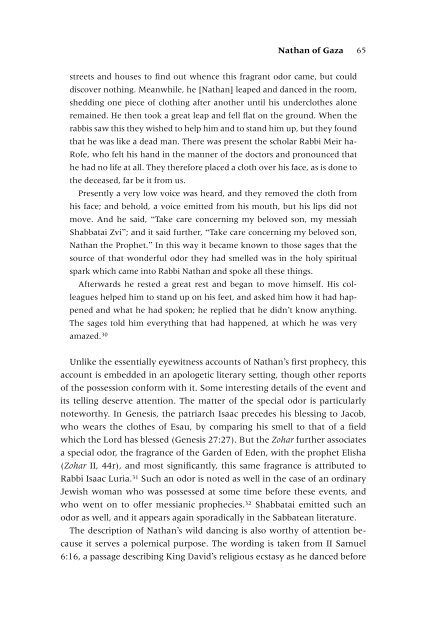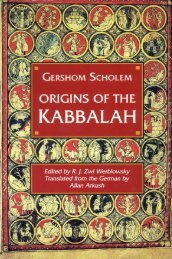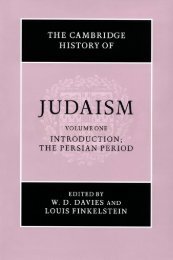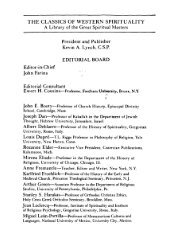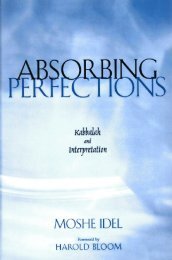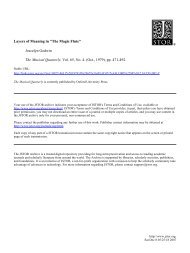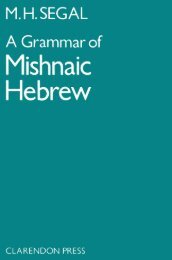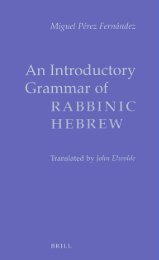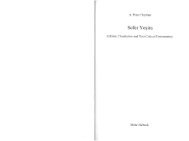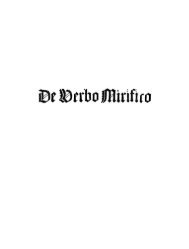Create successful ePaper yourself
Turn your PDF publications into a flip-book with our unique Google optimized e-Paper software.
Nathan of Gaza 65<br />
streets and houses to find out whence this fragrant odor came, but could<br />
discover nothing. Meanwhile, he [Nathan] leaped and danced in the room,<br />
shedding one piece of clothing after another until his underclothes alone<br />
remained. He then took a great leap and fell flat on the ground. When the<br />
rabbis saw this they wished to help him and to stand him up, but they found<br />
that he was like a dead man. <strong>The</strong>re was present the scholar Rabbi Meir ha-<br />
Rofe, who felt his hand in the manner of the doctors and pronounced that<br />
he had no life at all. <strong>The</strong>y therefore placed a cloth over his face, as is done to<br />
the deceased, far be it from us.<br />
Presently a very low voice was heard, and they removed the cloth from<br />
his face; and behold, a voice emitted from his mouth, but his lips did not<br />
move. And he said, “Take care concerning my beloved son, my messiah<br />
Shabbatai Zvi”; and it said further, “Take care concerning my beloved son,<br />
Nathan the Prophet.” In this way it became known to those sages that the<br />
source of that wonderful odor they had smelled was in the holy spiritual<br />
spark which came into Rabbi Nathan and spoke all these things.<br />
Afterwards he rested a great rest and began to move himself. His colleagues<br />
helped him to stand up on his feet, and asked him how it had happened<br />
and what he had spoken; he replied that he didn’t know anything.<br />
<strong>The</strong> sages told him everything that had happened, at which he was very<br />
amazed. 30<br />
Unlike the essentially eyewitness accounts of Nathan’s first prophecy, this<br />
account is embedded in an apologetic literary setting, though other reports<br />
of the possession conform with it. Some interesting details of the event and<br />
its telling deserve attention. <strong>The</strong> matter of the special odor is particularly<br />
noteworthy. In Genesis, the patriarch Isaac precedes his blessing to Jacob,<br />
who wears the clothes of Esau, by comparing his smell to that of a field<br />
which the Lord has blessed (Genesis 27:27). But the Zohar further associates<br />
a special odor, the fragrance of the Garden of Eden, with the prophet Elisha<br />
(Zohar II, 44r), and most significantly, this same fragrance is attributed to<br />
Rabbi Isaac Luria. 31 Such an odor is noted as well in the case of an ordinary<br />
Jewish woman who was possessed at some time before these events, and<br />
who went on to offer messianic prophecies. 32 Shabbatai emitted such an<br />
odor as well, and it appears again sporadically in the <strong>Sabbatean</strong> literature.<br />
<strong>The</strong> description of Nathan’s wild dancing is also worthy of attention because<br />
it serves a polemical purpose. <strong>The</strong> wording is taken from II Samuel<br />
6:16, a passage describing King David’s religious ecstasy as he danced before


